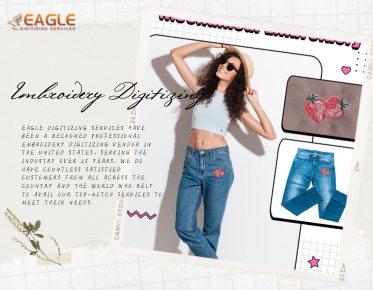The Key Benefits: What Are the Advantages of a Vector File for a Photo
Vector files
offer a range of advantages that make them ideal for certain types of images,
particularly in design and branding. Unlike raster files, vector graphics are resolution-independent, meaning
they can be scaled to any size without losing quality. In this article, we’ll
explore the key benefits of using vector files for photos and how they can
enhance your creative projects.
Unraveling the Benefits: What Makes Vectors Stand Out?
When it comes to
digital imagery, vector files have carved out a unique niche that sets them
apart from their raster counterparts. Unlike raster images, which are made up
of a fixed grid of pixels, vector files utilize mathematical equations to
create images composed of paths and points. This fundamental difference allows
for a plethora of benefits, such as scalability without quality loss and easier
edits. Additionally, vector files maintain clarity and sharpness, regardless of
how large or small they are rendered, making them a preferred choice for
professionals across various industries.
Versatility in Design
Adapting
to Various Mediums: Print vs. Digital
Vector files
shine in their versatility, seamlessly transitioning between print and digital
mediums. When it comes to print, vectors can be scaled and adjusted without
worrying about pixelation, making them ideal for everything from flyers to
posters. On the digital front, they adapt beautifully for websites and social
media graphics, allowing designers to create stunning visuals that retain their
quality across different platforms. This flexibility makes vectors an essential
tool in any designer's arsenal.
Seamless
Integration: Using Vectors in Different Projects
The adaptability
of vector files extends beyond just their dimensions. They can be effortlessly
integrated into various projects, whether it's animation, web design, or
physical products. Their clean lines and crisp edges allow for easy layering
and blending with other elements, providing designers with an array of creative
possibilities. The ability to incorporate vector graphics into diverse projects
elevates the overall aesthetic, making them a go-to option for artistic
expression.
File Size and Storage Efficiency
Why
Vector Files Are Often Smaller: Storage Advantages
Another
noteworthy advantage of vector files is their file size. Generally speaking,
vectors tend to be smaller than raster images because they store data as
equations rather than pixels. This efficient storage method means you can keep
a vast library of graphics without consuming excessive disk space. For
designers managing hundreds, if not thousands, of files, this storage
efficiency can streamline workflows and enhance productivity.
Easier
Management: Organizing Your Graphics Library
Managing your
graphics library is a breeze with vector files. Due to their smaller size and
scalability, you can easily categorize and store numerous designs without
worrying about performance slowdowns. This organization can make retrieving and
repurposing files much more manageable, allowing you to focus on creativity
rather than searching for the right image. A well-organized graphics library
leads to more efficient workflows, ultimately resulting in higher-quality
output.
Editability and Customization
Non-Destructive
Editing: Making Changes Without Sacrifice
One of the
standout features of vector files is their ability to allow non-destructive
editing. This means you can make changes to your designs without permanently
altering the original file. Whether you want to tweak a color, reshape a line,
or alter a graphic's composition, vectors make these adjustments
straightforward and reversible. This flexibility empowers designers to
experiment freely, ultimately enhancing their creative output.
The
Freedom to Experiment: Adjusting Shapes, Colors, and More
With vector
files, experimentation is encouraged. The ability to adjust shapes, and colors,
and even apply various effects without losing the integrity of the design means
you can explore creative avenues without fear of repercussions. This freedom
fosters innovation, allowing artists to push boundaries and discover new styles
that might otherwise go unnoticed. The more you experiment with vectors, the more
your unique artistic voice will emerge.
Perfect for Logos and Branding
Consistent
Quality Across All Uses: Essential for Branding
In branding,
consistency is key, and vector files excel in this arena. They ensure that
logos and other brand elements maintain their quality across different mediums
and sizes. Whether printed on a business card or displayed on a website, vector
graphics retain their clarity and color integrity. This consistency helps build
brand recognition and trust, making vector files indispensable
for businesses aiming to establish a strong visual identity.
Creating
Timeless Designs: Why Vectors Work Best for Logos
Vector files are
not just practical; they are also ideal for creating timeless designs. Their
ability to maintain quality over time means that your logo can remain relevant
and fresh for years without needing significant redesigns. This durability is
crucial for brands looking to make a lasting impression in a competitive
marketplace. Choosing vectors for logos ensures that your visual identity
remains robust and impactful.
Color Management Made Easy
Spot
Colors vs. RGB: Understanding Color in Vectors
When it comes to
color management, vector files provide versatility. They can easily accommodate
spot colors, which are specific inks used in printing, as well as RGB colors,
which are ideal for digital applications. This flexibility allows designers to
choose the best color method for their specific project needs. Understanding
the differences and how to apply them can enhance the vibrancy and accuracy of
your designs.
Consistency
Across Platforms: Ensuring Your Colors Stay True
Vector files help
maintain color consistency across platforms, a critical aspect for any design
project. Unlike raster images, which can shift in appearance based on
resolution or display, vectors ensure that your colors remain true to your
original vision. This reliability is particularly important for branding, where
color integrity plays a significant role in brand recognition and customer
trust.
Professional Presentation
Clean
and Crisp Lines: Enhancing Visual Appeal
The aesthetic
appeal of vector files cannot be overstated. Their clean, crisp lines create a
polished and professional appearance that elevates any design. This quality is
especially important for marketing materials, where first impressions matter.
Well-executed vector graphics can communicate professionalism and attention to
detail, making your designs more impactful.
Impactful
Designs: Making a Lasting Impression
When it comes to
visual communication, the impact is everything. Vector files enable designers
to create stunning, high-impact designs that capture attention and convey
messages effectively. Whether it's an eye-catching logo or a bold graphic for a
campaign, vectors provide the tools necessary to make a memorable statement.
The lasting impression created by quality vector artwork can be a game-changer
in marketing and branding efforts.
The Importance of Resolution Independence
Scaling
Up Without Losing Quality: The Vector Advantage
One of the most
significant benefits of vector files is their resolution independence. This
characteristic means that vectors can be scaled up or down infinitely without
any loss of quality. For designers, this is a dream come true—no more worrying
about pixelation when enlarging an image for print or reducing it for web use.
This flexibility allows for greater creativity and innovation in design
projects.
Ideal
for Large Formats: Posters, Banners, and More
Vector files are
particularly advantageous when it comes to large-format printing. Whether
creating posters, banners, or large-scale graphics, vectors ensure that your
designs maintain their integrity and visual appeal. This capability is
essential for businesses and organizations looking to make a significant impact
with their visual communications. With vectors, you can create large-scale
designs that look as stunning as they do at smaller sizes.
File Compatibility
Popular
Formats: EPS, SVG, and PDF Explained
Vectorfiles come in several popular formats, including EPS, SVG, and PDF. Each format has
its unique features and applications. EPS files are widely used in professional
graphic design and are compatible with various software. SVG files are ideal
for web use, as they scale beautifully without losing quality. PDFs are
versatile, allowing for easy sharing and printing. Understanding these formats
can help you choose the best one for your specific project needs.
Easy
Integration with Software: Compatibility with Design Programs
One of the major
advantages of vector files is their compatibility with various design programs.
Whether you’re using Adobe Illustrator, CorelDRAW, or Inkscape, vectors can be
easily imported and manipulated. This compatibility ensures that designers can
work with their preferred software without hassle, making the creative process
smoother and more enjoyable.
Cost-Effectiveness for Printing
Savings
on Printing Costs: How Vectors Can Help
Utilizing vector
files can lead to significant cost savings when it comes to printing. Since
vectors maintain their quality at any size, businesses can produce high-quality
prints without the risk of reprints due to quality issues. Additionally, the
efficient file size of vectors can reduce storage and handling costs, making
them a financially savvy choice for marketing materials and branding.
Ideal
for Bulk Production: Streamlining the Process
For companies
needing large quantities of printed materials, vector files are particularly
beneficial. Their scalability and consistent quality allow for streamlined
production processes, making it easier to handle bulk orders. With vectors,
businesses can ensure that every printed piece is of the same high quality,
enhancing their overall marketing efforts.
Animation and Motion Graphics
Bringing
Your Vectors to Life: The Animation Potential
Vector files are
not limited to static designs; they have incredible potential for animation as
well. The clean lines and defined shapes of vector graphics make them ideal for
creating captivating motion graphics. This versatility allows artists and
animators to create dynamic content that can elevate brand storytelling and
engage audiences.
Using
Vectors in Video Production: Enhancing Visuals
In video
production, vector graphics can enhance the overall visual experience. They can
be easily animated, layered, and manipulated to create visually striking
sequences. The adaptability of vector files allows for seamless integration
into various video projects, ensuring that your graphics will shine on screen,
regardless of the format.
Best Practices for Creating Vector Files
Tips
for Designing High-Quality Vectors
To maximize the
advantages of vector files, it’s essential to adhere to best practices when
designing. Start with a clear concept and utilize clean lines and shapes. Pay
attention to detail, ensuring that paths and anchor points are optimized for
smooth curves. Experiment with colors and effects while maintaining a cohesive
design approach. These practices can help elevate your vector graphics to
professional standards.
Common
Mistakes to Avoid When Working with Vectors
While working
with vectors offers numerous benefits, it’s crucial to avoid common pitfalls.
One mistake is overcomplicating designs, which can lead to unnecessary complexity.
Additionally, neglecting color management can result in inconsistencies across
platforms. Finally, failing to optimize files for the intended output can lead
to quality issues. By being mindful of these potential missteps, you can create
stunning vector files that truly shine.
The advantages of vector files are vast and varied, offering unparalleled opportunities for creativity and innovation. Whether you’re a seasoned designer or just starting, embracing the power of vectors can transform your work and open new avenues for artistic expression.
So, leap and experiment with vector graphics in your next project. Whether you’re designing logos, creating animations, or exploring new visual territories, the potential of vectors is limited only by your imagination. Embrace the vector advantage and let your creativity flourish!
.png)


